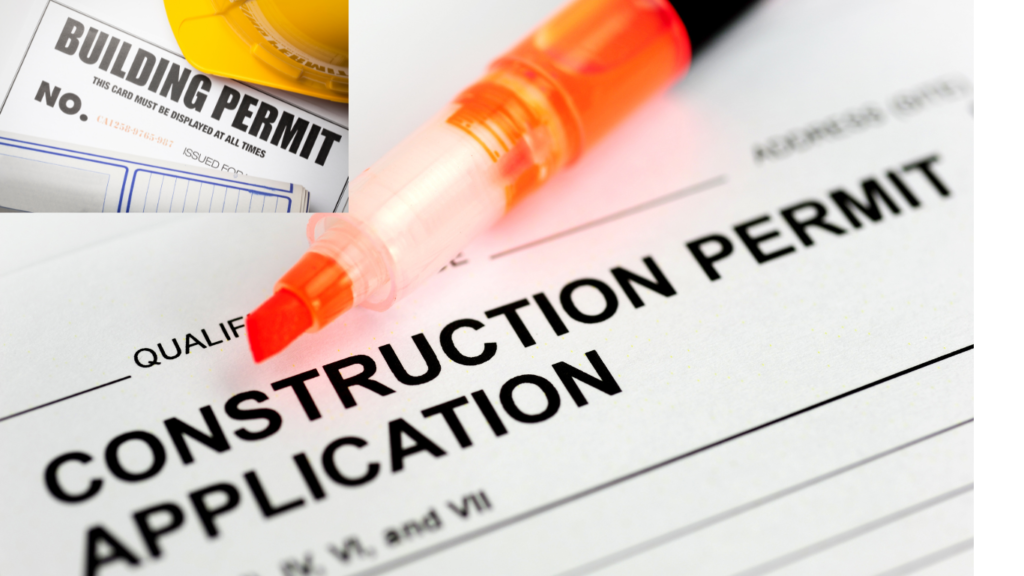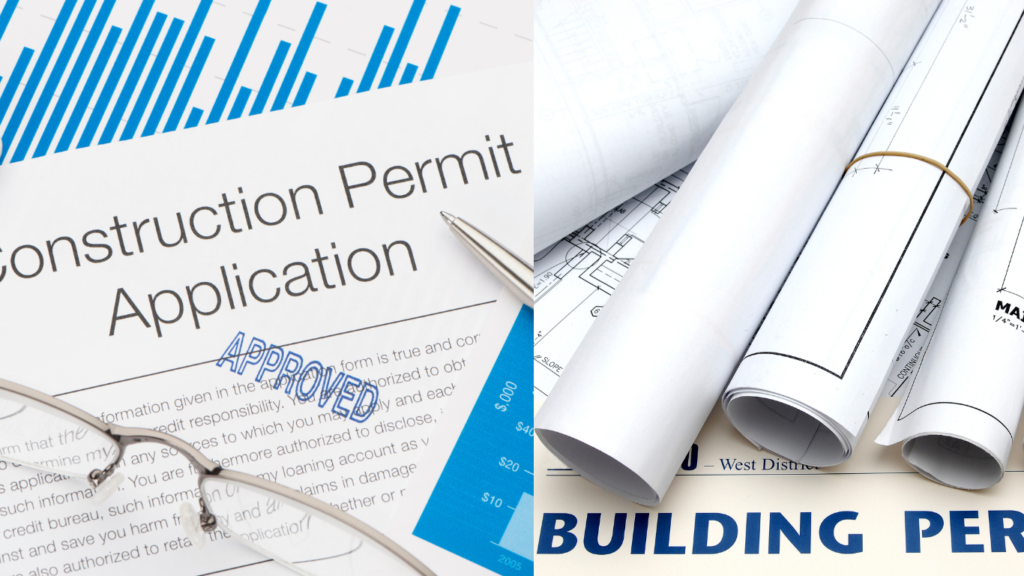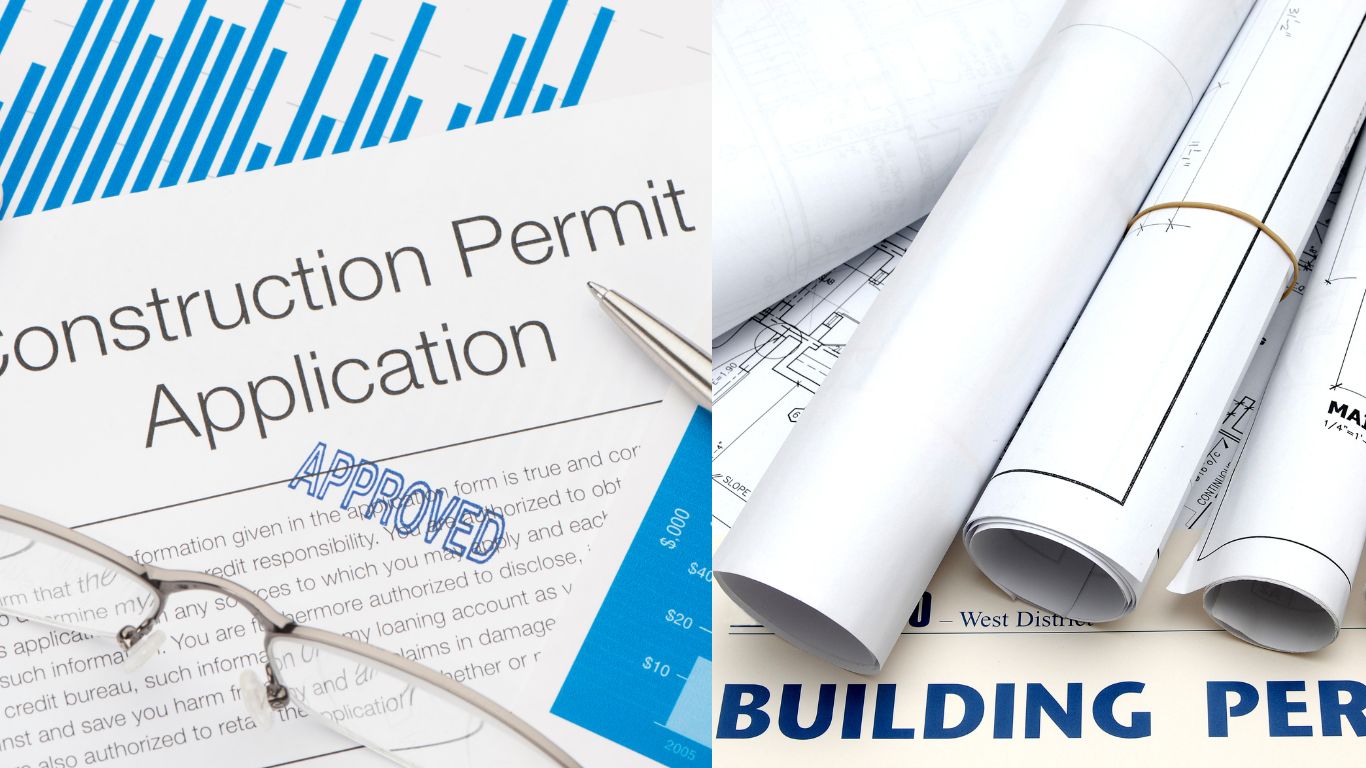Unlock your dream project(2025) An ultimate guide to India’s construction permit requirements
Introduction
If you are planning to build a house, office, or any other structure in India, you need to follow the construction permit requirements in India.

This permit ensures compliance with safety regulations, zoning laws, and environmental guidelines. Without the necessary permits, your construction project may face legal complications, penalties, or even demolition.
In this article, we will explore everything you need to know about construction permit requirements in India, including the approval process, legal aspects, and how it compares to the USA.
Construction Permit Requirements: India vs. USA
To help you understand the key differences, here’s a comparison table of construction permit requirements in India and the USA:
| Requirement | India | USA |
| Application Process | Requires submission to local municipal authority | Applied through city or county building department |
| Documents Required | Land ownership proof, building plan, environmental clearance, structural stability certificate, etc. | Site plan, architectural drawings, zoning approval, and environmental impact assessment |
| Approval Time | Can take several months depending on the city and project | Typically takes a few weeks to a few months |
| Fees | Varies based on city, building size, and type | Varies by state and project scope |
| Inspections | Multiple inspections at different stages of construction | Regular inspections throughout the project |
| Penalties for Violations | Heavy fines, legal actions, or demolition | Fines, stop-work orders, or demolition in severe cases |
What Are Construction Permit Requirements?
A construction permit is an official approval from the local municipal authority that allows individuals or businesses to proceed with a construction project. It ensures adherence to zoning laws, building codes, and safety regulations. Without a valid permit, the construction may be considered illegal and can result in penalties.

Types of Construction Permits requirements in India
Construction permits can be categorized into different types based on the nature of the project:
- Residential Building Permit – Required for constructing houses, apartments, and residential buildings.
- Commercial Building Permit – Needed for office spaces, shopping complexes, and commercial establishments.
- Industrial Building Permit – Necessary for factories, warehouses, and manufacturing plants.
- Special Building Permit – Required for structures such as hospitals, schools, and religious buildings.
Why Is It Important to Have a Construction Permit requirements in India?
Construction permits serve several crucial purposes:
- Ensures Safety: Confirms that the building meets structural integrity and fire safety regulations.
- Legal Compliance: Prevents legal disputes and penalties related to unauthorized construction.
- Zoning Regulations: Ensures the building is constructed in a designated area suitable for its purpose.
- Property Value Protection: Properly approved buildings have higher market value and credibility.
- Environmental Protection: Prevents ecological damage by following environmental guidelines.
- Avoids Demolition Risks: Unauthorized constructions may face demolition orders from authorities.
How to Get a Building/construction Permit requirements in India
Here is a step-by-step guide to obtaining a building permit in India:
- Prepare Documents: Collect land ownership proof, building plan, architect’s certificate, and environmental clearance documents.
- Submit Application: Apply to the local municipal corporation or urban development authority with the required documents.
- Approval from Authorities: The application undergoes scrutiny, and necessary approvals from different departments are obtained.
- Inspection by Officials: Government officials inspect the site to verify compliance with regulations.
- Fee Payment: Pay the applicable permit fees based on the project size and type.
- Final Permit Issuance: Once approved, the construction permit requirements in India are met, and the permit is issued.
- Ongoing Compliance Checks: Periodic inspections ensure continued adherence to building codes.
What Are the Construction Permit Requirements for General Buildings?
For general buildings, the following permits and approvals are required:
- Land Title & Ownership Proof
- Zoning and Land Use Permission
- Building Plan Approval from Municipal Corporation
- Environmental Clearance (for large projects)
- Fire Safety Clearance
- Structural Stability Certificate
- Water and Sewage Connection Approval
- Consent from Electricity Department
- NOC from Housing Societies (if applicable)
What Are Building Bye-Laws and Building Height Restrictions?
Building bye-laws are regulations governing construction in a specific area. They cover aspects like:
- Setbacks and Margins: Distance between buildings and roads.
- Building Height Restrictions: Limits on how tall a building can be in different zones.
- Floor Space Index (FSI): The ratio of total built-up area to plot size.
- Parking Requirements: Minimum parking space needed for residential and commercial buildings.
- Open Space Norms: Ensuring adequate ventilation and light penetration in buildings.
Height restrictions vary based on city planning rules, airspace regulations, and fire safety norms. For example, metro cities like Mumbai and Delhi have specific height limits based on location and infrastructure capabilities.
Pros and Cons of Construction Permit Requirements in India
Pros:
✅ Ensures safety and quality standards.
✅ Protects property rights and legal standing.
✅ Prevents unauthorized and hazardous construction.
✅ Encourages organized urban development.
✅ Ensures sustainable city planning.
Cons:
❌ Lengthy and time-consuming approval process.
❌ Bureaucratic red tape and potential corruption.
❌ High fees for certain permits.
❌ Complex documentation requirements.
❌ Frequent changes in regulations can cause confusion.
Final Verdict
Construction permit requirements in India are essential for ensuring safety, legal compliance, and structured urban development. Although the process can be time-consuming, it is necessary to avoid legal troubles and ensure a hassle-free construction experience. If you’re planning to build a property, it is best to consult with a professional architect or legal expert to navigate the permit process smoothly.
Key Takeaways
- Construction permit requirements in India are mandatory for all building projects.
- The permit process involves multiple approvals and inspections.
- Compliance with zoning laws and building bye-laws is crucial.
- The process can be slow, but it protects legal rights and safety.
- Hiring an expert can help streamline the permit approval process.
- Different types of permits exist based on project requirements.
Frequently Asked Questions (FAQs)
How long does it take to get a construction permit in India?
It varies by city and project size, but it typically takes 3 to 6 months.
What happens if I build without a construction permit?
You may face legal action, heavy fines, or even demolition of the structure.
Can I get a construction permit online in India?
Some states offer online application portals, but physical verification and approvals are still required.
What is the cost of getting a building permit in India?
The cost depends on the size and type of building and varies by city and state.
Do I need an architect to get a construction permit?
Yes, a certified architect’s approval is required for the building plan.
Are there exemptions for small constructions?
Some small-scale residential projects may have relaxed requirements, but permits are still needed.
Can I modify my building plan after getting a permit?
Modifications require re-approval from the municipal authority to ensure compliance with regulations.

